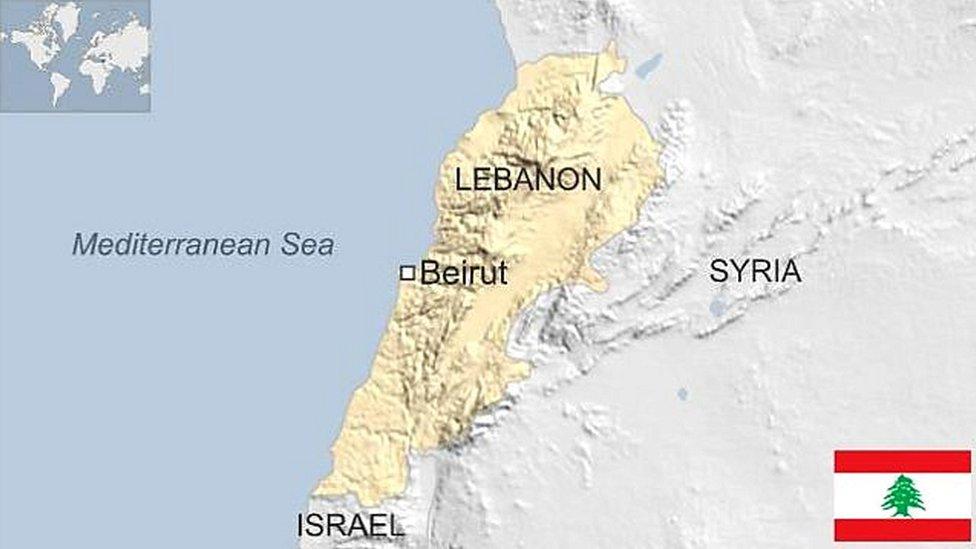Lebanon army calls for political 'caution' amid clashes
- Published
Clashes reportedly continued on Monday with gunshots heard in the northern city of Tripoli
Lebanon's army has urged the country's political leaders to show caution when expressing their opinions, in a bid to calm "unprecedented" tensions.
It comes after clashes broke out in several areas, following the killing of a senior security official on Friday.
The worst clashes were in Tripoli, in the north, where at least three people died as gunmen exchanged fire.
Soldiers have been deployed in the capital Beirut, where there have been sporadic clashes.
In a statement, the army said the last few hours "have proven without a doubt that the country is going through a decisive and critical time and the level of tension in some regions is rising to unprecedented levels".
It urged "all political leaders to be cautious when expressing their stances and opinions" and in attempting to mobilise public action "because the fate of the nation is at stake".
The BBC's Wyre Davies in Beirut says the army is a widely respected institution in Lebanon that has often been required to stand between the country's diverse political and religious factions.
After days of heightened tension, the statement can only be taken as a warning against further unrest, he says.
Syria accused
The clashes come after the funeral of Gen Wissam al-Hassan - a Sunni Muslim and the head of the intelligence branch of the Internal Security Forces.
He was killed in a car bomb on Friday, along with his bodyguard and at least one other person.
Opposition figures blamed the attack on the Syrian government.
Lebanon's religious communities are divided between those who support the Syrian government - including many Shias - and those mostly from the Sunni community who back the rebels.
Gen Hassan was an outspoken critic of Syrian President Bashar al-Assad, who is a member of the Alawite sect, an offshoot of Shia Islam.
Mr Hassan also had close links to the opposition 14 March alliance and the family of its leader, former Prime Minister Saad Hariri.
Prime Minister Najib Mikati - a Sunni - offered to resign, but this was rejected by the president.
On Monday, dozens of people set up camp outside Mr Mikati's office, calling for his cabinet - dominated by the pro-Syrian Shia Islamist movement Hezbollah and its allies - to stand down.
But government minister Nicholas Nahas, a member of Mr Mikati's party, said the prime minister's resignation would not do anything to keep Lebanon out of the Syrian conflict.
"I don't think the issue is to resign or not to resign. The issue is how to save the country," he told the BBC.
Meanwhile, the US has said it will help the Lebanese government with its investigation into Friday's bombing.
Gen Hassan led an investigation into the assassination in 2005 of Mr Hariri's father Rafik, which implicated Damascus.
He also organised the recent arrest of Michel Samaha, a former minister accused of planning a Syrian-sponsored bombing campaign in Lebanon.
Syrian troops withdrew from Lebanon in the wake of Rafik Hariri's murder, ending a 29-year military presence.
Thousands attended Gen Hassan's funeral on Sunday, which became a political rally against both Mr Mikati and Syria.
Police scuffled with a group of protesters who attempted to storm the prime minister's office.
In Tripoli, two children were among at least three people killed in clashes on Sunday.
Overnight into Monday, protesters set up road blocks in Beirut, and exchanges of gunfire were reported.
The army launched a major security operation in the morning, sending troops backed by armoured personnel carriers on to the streets to restore calm and re-open roads.
- Published20 October 2012
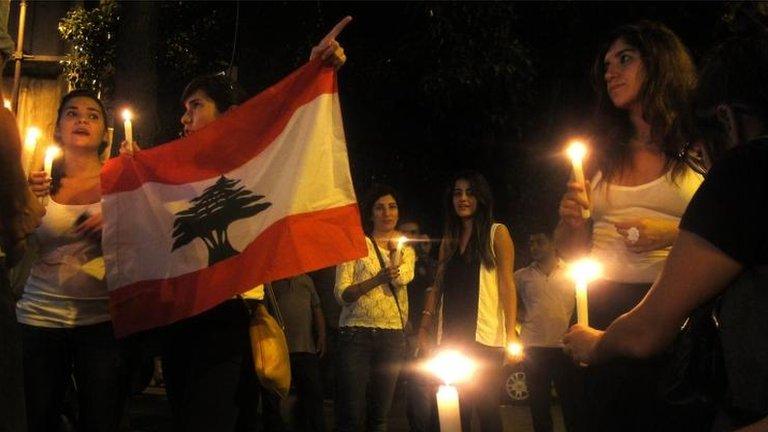
- Published19 October 2012
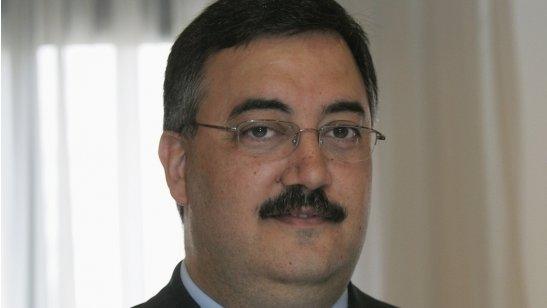
- Published22 September 2012
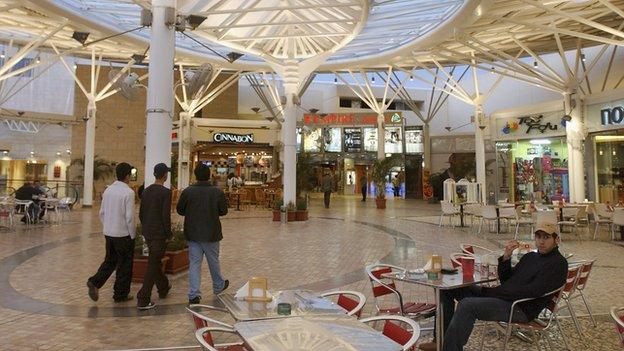
- Published20 October 2012
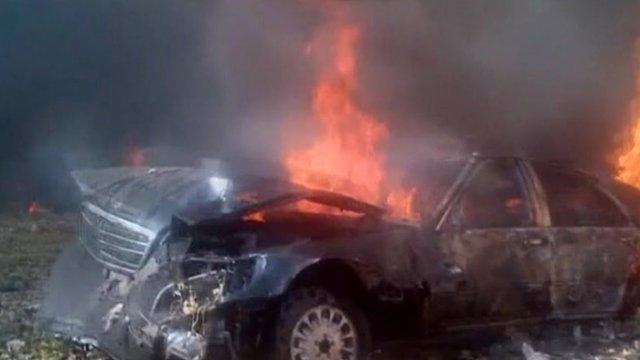
- Published10 January
